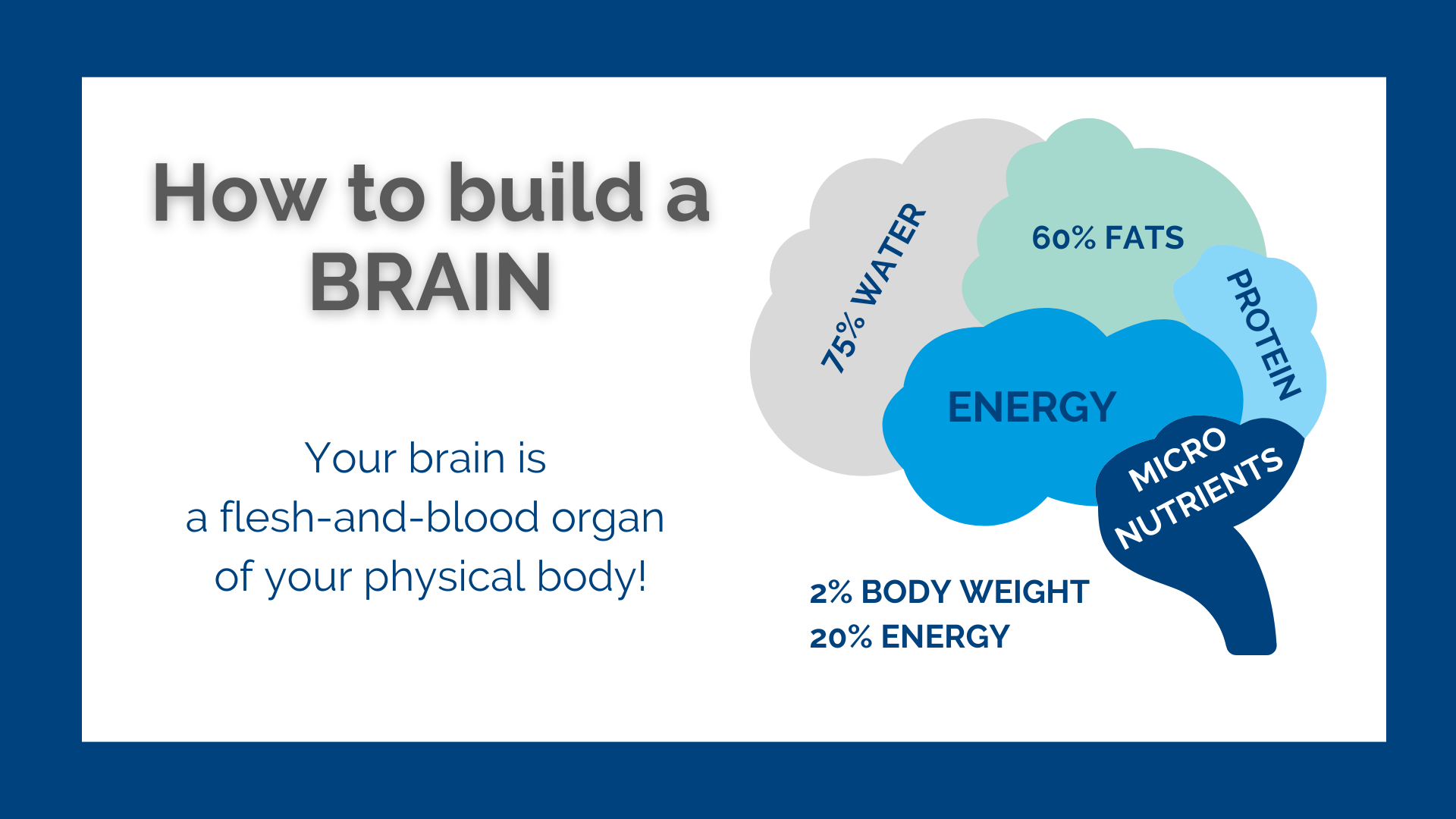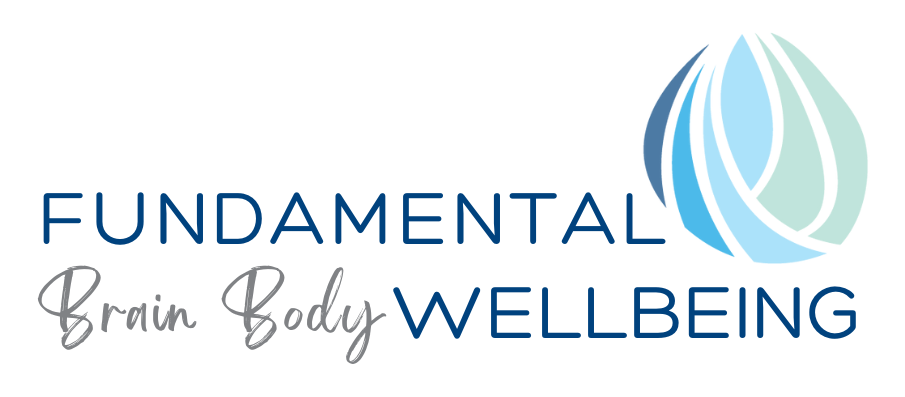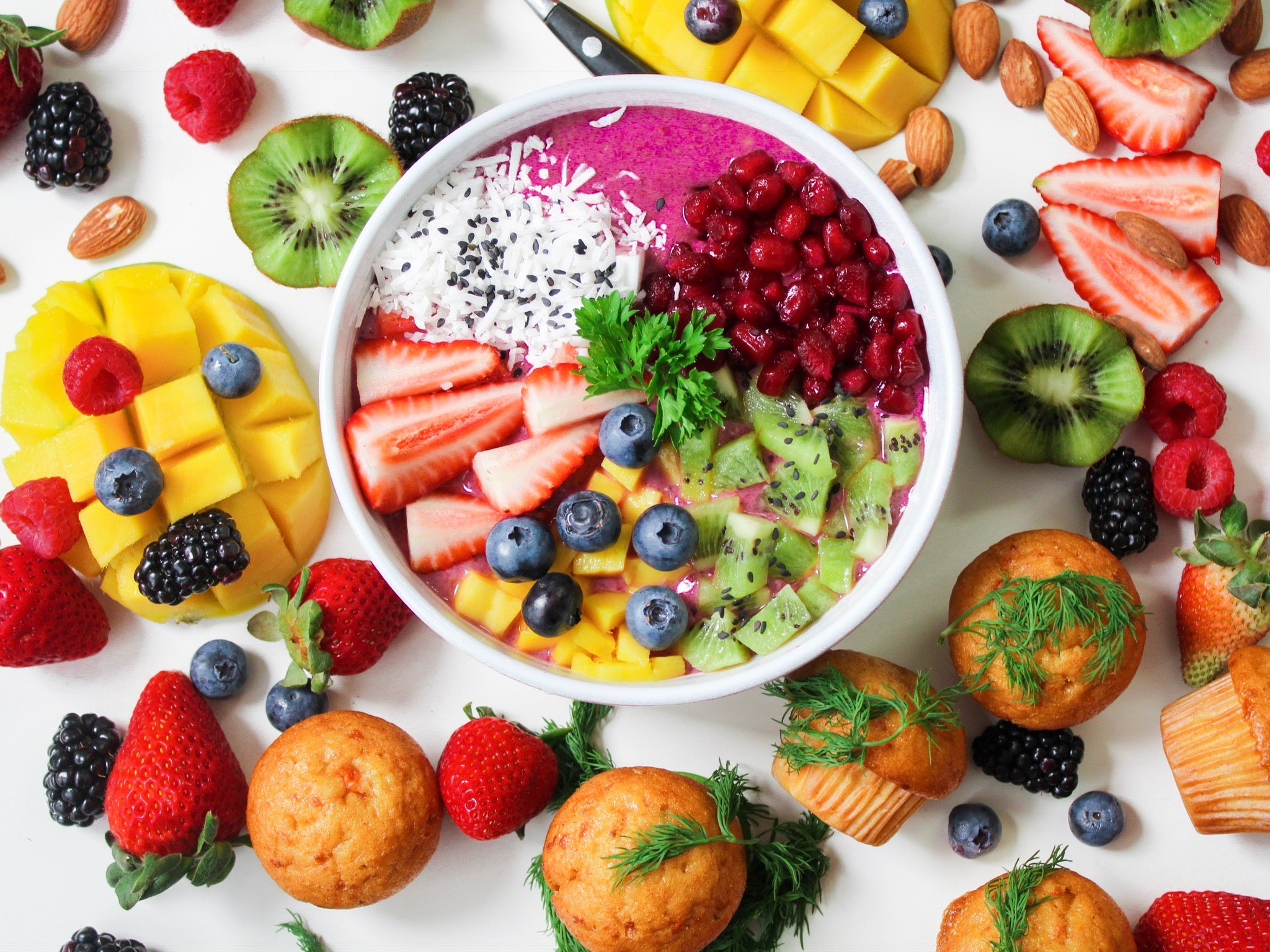Too Good To Be True?
Can my diet REALLY influence my mental health? I mean, we know about comfort foods, we know chocolate makes us feel good, alcohol helps us to relax, and we feel gross after eating McDonalds, but our mental health is really about our psychology, thoughts, stressors, circumstances and upbringing, right?
Well yes, but that doesn’t mean that your food plays no part. In fact, I think it plays a very important role in your overall mental and emotional wellbeing, including how even your moods are and how well you cope with unexpected events.
After all, your brain is a flesh-and-blood organ of your physical body – just like your skin, muscles, bones, eyes and other organs – and as such it is dependent on dietary nutrients to build its structures, consume energy (its electric!) and operate the 1000’s of tasks it achieves on the daily.

Ingredients for a Brain:
- Water – dehydration is associated with anxiety, poor memory and poor concentration
- FATS – making up most of the brains structures, the brain prefers omega 3 fats like DHA, plus a bit of cholesterol for stability
- PROTEIN – forming receptor sites, transporters and neurotransmitters
- MICRO NUTRIENTS – because your brains fats are susceptible to oxidation (just like the nuts, seeds and olive oil in your pantry), many micronutrients are there to protect your brain from free radical damage, as well as act as co-factors in the production of neurotransmitters
- ENERGY – 2% of your body weight consumes 20% of your energy
I hope you can see from that that there are many nutritional factors that influence your brain and nervous system, and therefore your mental health. The main things to look out for are:
- DEFICIENCIES in the nutrients – healthy fats, proteins – needed to build brain structures, including neurons, cells walls, and the blood-brain barrier
- DEFICIENCIES in the nutrients needed to produce and metabolise hormones and neurotransmitters, including Magnesium, Zinc, Vitamin D, B Vitamins, Iron, Calcium, and Omega-3 fats
- INFLAMMATION – causing stress and oxidative damage to brain fats. Inflammation in the brain is associated with anxiety and depression. Inflammation can be triggered or exacerbated by food allergies & intolerance, high histamine, and inflammatory foods (including caffeine, alcohol, sugar and gluten)
- TOXIC LOAD from food additives, preservatives, pesticides, herbicides, fragrances, heavy metals – these can act as endocrine disruptors and neurotoxins, and stimulate / exacerbate inflammation
- The GUT-BRAIN Connection – by which your Vagus Nerve and digestive microbiome help to regulate mental health and hormone clearance; and the liver and bowel health have essential roles in excreting toxins
So what should we eat?
Good nutrition supporting stabilised moods doesn’t have to be complicated. The Mediterranean Diet has been scientifically researched to improve mental health by 30%*. Unfortunately, however, it’s not all pizza and pasta, but based of the traditional diets of people living around Greece, Spain and Italy. The main features of the Mediterranean Diet are:
- Plant-based – high in a wide variety of nutrient-dense fresh fruit and vegetables, providing many macronutrients, anti-oxidants and fibre for the gut microbiome. Experts recommend 6 – 9 serves daily!
- Healthy fats – important for both hormonal production and brain function, found in olive oil, nuts and seeds
- Clean Protein – providing amino acids for your feel-good neurotransmitters. From fish, seafood, grass-fed & free-range animal products
- Complex carbohydrate – to keep blood sugar levels stable, which keeps insulin and cortisol under control, from wholegrains, legumes and root vegetables
- High in fibre for gut health, hormone detox & to nurture your gut microbiome (where neurotransmitters are produced)

The only thing I recommend in addition to the general guidelines is to remove processed junk and inflammatory foods – sometimes that needs extra attention if you have any food sensitivities or digestive issues.
It’s simple, but it’s not always easy. Our dietary habits are deeply ingrained from our culture, upbringing and physiology, and changing them can often be challenging. But like trying anything new, it just takes a well-planned approach and a lot of practice.
If you’re going to try to change things on your own, my advice is to choose one thing to add in to your daily diet – for example, 2 extra serves of vegetables – and one thing to take away, like your daily coffee or wine. When that becomes second nature to you, choose another thing to change.
If you need more guidance than that (and most of us do), sign up to be the first to hear about my upcoming Food & Mood Reboot program – launching soon! Register here:


